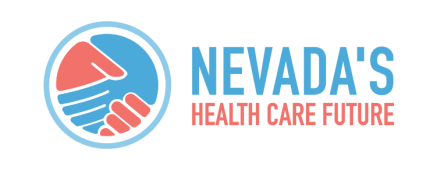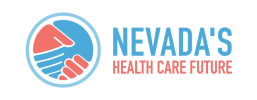New Brookings Analysis Urges ‘Caution Against Making Lasting Changes’ To State Health Policies In Light Of Federal Coverage Expansion
CARSON CITY, Nev. – A new analysis by the Brookings Institution highlights the significant new resources now available for Americans to obtain affordable health coverage under the federal government’s recently-enacted American Rescue Plan Act (ARPA). As Nevada lawmakers discuss creating an unaffordable, new state government-controlled health insurance system known as the state government option, the analysis concludes that elected leaders in Carson City and other state capitals should take “caution against making lasting changes” to their states’ health care policies “until matters are clearer.”
As Nevada Governor Steve Sisolak said, “[t]he American Rescue Plan builds upon work in the Affordable Care Act … and Nevadans will benefit from expanded subsidies, lower premiums and access to applying for health insurance outside of the traditional Open Enrollment windows.”
Under ARPA, “Nevada Health Link, the online health insurance marketplace operated by the state agency, the Silver State Health Insurance Exchange (Exchange), is offering even bigger coverage savings to eligible uninsured and insured off-Exchange Nevadans,” Nevada Business reports. “No Nevadan will pay more than 8.5 percent of their income in premiums for the second lowest-cost silver plan (or benchmark plan) in the county where they reside … Thousands of Nevadans who are currently enrolled in health insurance through Nevada Health Link will now qualify for subsidies that will lower their costs dramatically … Nevadans qualify for lower deductibles, copayments and coinsurance when using their health plan through Nevada Health Link. Nevadans can also benefit financially from cost-sharing reductions, no annual deductibles and low copays/coinsurance under a silver-level plan.”
A new analysis by the Kaiser Family Foundation (KFF) finds that “the number of people eligible for a subsidy to purchase Marketplace coverage has increased 20 percent from 18.1 million to 21.8 million,” while “the majority of uninsured people (63 percent) are now eligible for financial assistance through the Marketplaces, Medicaid, or Basic Health Plans. In fact, more than four out of 10 uninsured people are eligible for a free or nearly free health plan through one of these programs.”
As the largest expansion of affordable coverage since the Affordable Care Act, ARPA has “profound implications for state health policy, aiding state efforts to make coverage more affordable and accessible,” the Brookings analysis finds, adding that “the potential for future action [at the federal level] requires states to remain nimble in their decision-making.” A recent analysis by the Urban Institute also weighs the possibility of federal lawmakers making the new expanded federal subsidies permanent, and President Joe Biden’s proposed next steps on health care would “make recent boosts to Obamacare subsidies permanent, an idea that enjoys broad support,” POLITICO reports.
Meanwhile, a new statewide poll conducted by Locust Street Group on behalf of Nevada’s Health Care Future finds that Nevada voters overwhelmingly support efforts to build on and improve what’s working in health care, rather than start over by creating a state government-controlled health insurance system like the state government option.
The poll’s key findings include:
- Seventy-five percent of voters prefer for lawmakers to BUILD ON Nevada’s health care system rather than create a new state government option.
- A majority of Nevada voters do NOT support the state government option (only 38 percent support).
- Voters are especially CONCERNED about the impacts of the state government option on access to quality care (78 percent), closure of at-risk rural hospitals (74 percent), and having fewer doctors (73 percent).
- Seventy-nine percent of voters are UNWILLING to pay more for health care than they currently do to subsidize the cost of the state option.
- Seventy-three percent of voters would rather keep their current coverage than buy state option coverage.
During this critical time, Nevada voters want state lawmakers to focus on jobs and the economy, with 70 percent of voters choosing it as one of their top two most important issues. Only 37 percent of voters believe health care is one of the two most important issue for state lawmakers to address.
Poll Methodology: Locust Street Group, on behalf of Nevada’s Health Care Future, surveyed 800 likely voters in Nevada (balanced to current state demographics by gender, age, race, income, education, and political ideology). The survey was fielded online from February 8 to February 23, 2021.
- To view Locust Street Group’s poll of Nevada voters, CLICK HERE.
- To read the analysis by the Brookings Institution, CLICK HERE.

